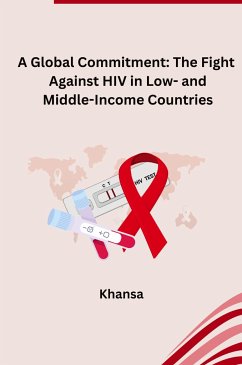
Health disparities
Versandkostenfrei!
Versandfertig in 6-10 Tagen
26,99 €
inkl. MwSt.

PAYBACK Punkte
13 °P sammeln!
Health disparities (also called healthcare inequality in some countries) refer to gaps in the quality of health and health care across racial, ethnic, sexual orientation and socioeconomic groups. The Health Resources and Services Administration defines health disparities as "population-specific differences in the presence of disease, health outcomes, or access to health care." In the United States, health disparities are well documented in minority populations such as African Americans, Native Americans, Asian Americans, and Latinos. When compared to whites, these minority groups have higher i...
Health disparities (also called healthcare inequality in some countries) refer to gaps in the quality of health and health care across racial, ethnic, sexual orientation and socioeconomic groups. The Health Resources and Services Administration defines health disparities as "population-specific differences in the presence of disease, health outcomes, or access to health care." In the United States, health disparities are well documented in minority populations such as African Americans, Native Americans, Asian Americans, and Latinos. When compared to whites, these minority groups have higher incidence of chronic diseases, higher mortality and poorer health outcomes. Among the disease-specific examples of racial and ethnic disparities in the United States is the cancer incidence rate among African Americans, which is 10% higher than among whites. In addition, adult African Americans and Latinos have approximately twice the risk as whites of developing diabetes. Minorities also have higher rates of cardiovascular disease, HIV/AIDS, and infant mortality than whites.












